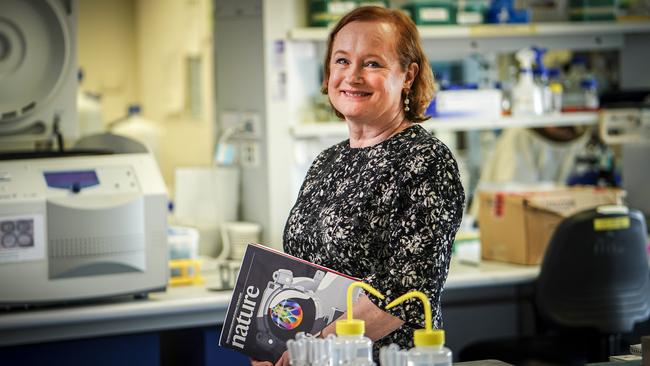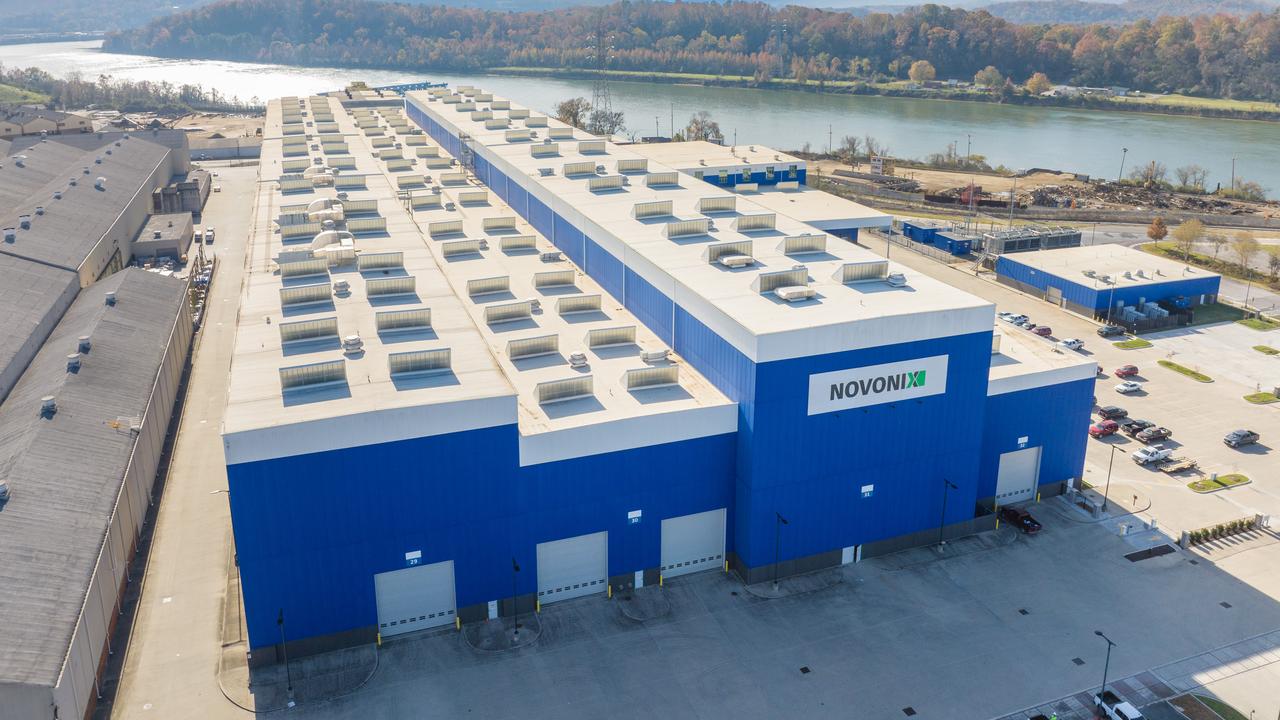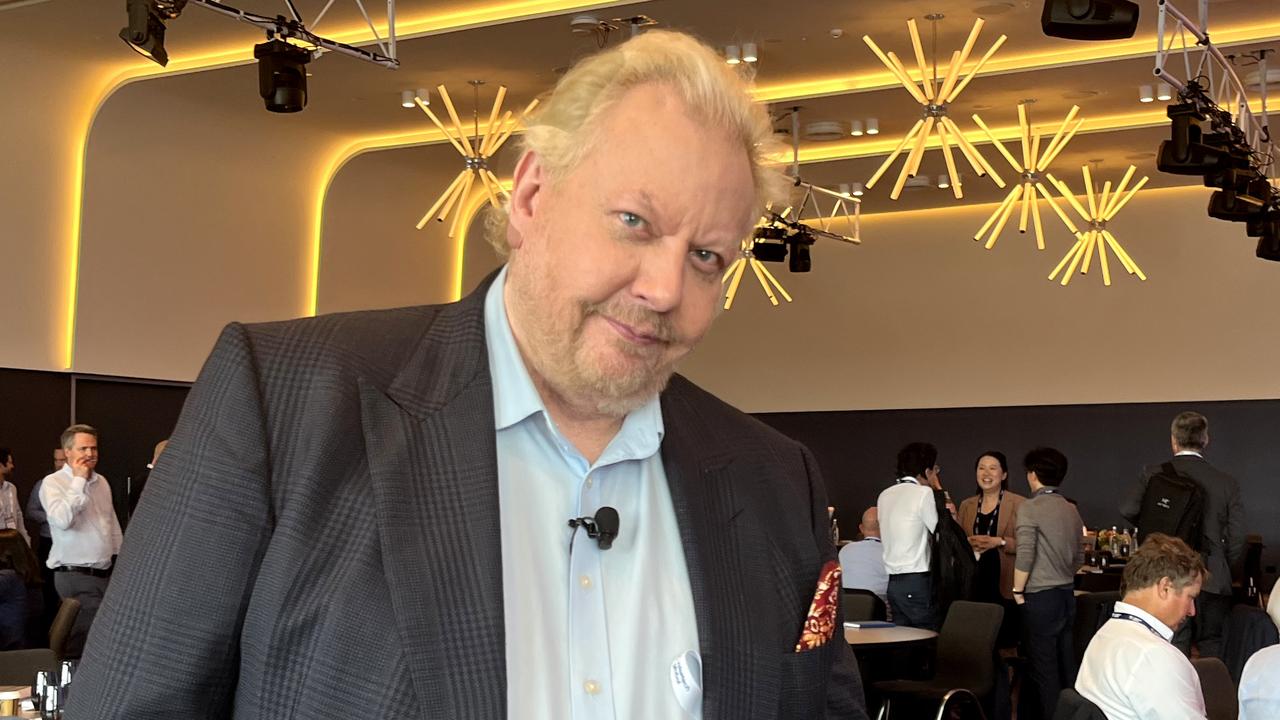Carina Biotech is about to start trials on a one-shot treatment for colon cancer
Carina Biotech, which is backed by the Forrest family’s venture capital and impact funds, is about to start trials on a potentially revolutionary colon cancer treatment.

Carina Biotech is about to kick off the first clinical trial of its CAR-T colon cancer treatment, following sign off by the US Food and Drug Administration, and with backing from heavy-hitting investors such as the Forrest family’s Tenmile health and technology fund.
Chief executive Dr Deborah Rathjen said the Adelaide-based life sciences company was currently screening patients at the Royal Adelaide Hospital and at St Vincent’s in Sydney, with the Peter MacCallum Cancer Centre in Melbourne also to start enrolling patients this month.
“So really any day now we anticipate enrolling our first patient into the trial,’’ Dr Rathjen said.
CAR-T therapy involves genetically engineering a patient’s own disease-fighting T-cells and then reinjecting them into the patient, in this case to fight colon cancer.
The therapy has the benefit of specifically targeting cancer cells, avoiding the significant downsides of therapies such as chemotherapy, and CAR-T therapy is intended as a single dose treatment.
It also has the potential to be a full cure, with the patient’s immune system likely to remain resilient to a cancer’s return post-therapy, Dr Rathjen said.
The current trial is a Phase 1 trial, intended to evaluate safety, however Dr Rathjen said with CAR-T therapies it was not unusual to see efficacy at this stage, “because they’re very potent’’.
“They’re a special kind of technology where we take the white cells out of the blood of the cancer patient, we separate out the T-cells, then you engineer those T-cells to specifically kill the cancer. It’s a very personalised medicine.
“Our trial is in patients with metastatic colorectal cancer.’’
Dr Rathjen said the technology was already well proven in blood cancer.
“We’re applying it to solid cancers which are always more challenging than blood cancers,’’ Dr Rathjen said.
“We decided we’d go after metastatic colorectal, because that’s where the target that the CAR-Ts are directed at is really highly expressed and where it drives not only the initiation of the primary tumour, but also drives metastasis and overall progression.’’
CAR-T treatments can cost in the order of $300,000-$500,000, Dr Rathjen said, with the cost so high because each treatment had to be specifically engineered to the patient.
“When they are effective, they are really, really effective, they are curative,’’ she said.
“There are, for example, children who had their leukaemias treated over 10 years ago with the first CAR-T therapies which were very experimental at that stage. Those children are still cancer free, and essentially they were in palliative care when they were treated.’’
Dr Rathjen said the company also had other cancer targets in the preclinical research stage.
Carina’s major investors include Tenmile, which is owned by the Forrest family’s Tattarang investment group, which put an initial $250m into the Tenmile fund.
Other Tenmile investee companies include orthopaedic CT imaging firm CurveBeam AI, psychedelics researcher Psylo, hypnosis therapeutics company Mindset Health and molecular diagnostic solutions company SpeeDx.
Prior to bringing in Tenmile, Dr Rathjen also brought the Forrest family’s Minderoo Foundation on board as an investor via its impact fund.
Other shareholders include high net worth individuals, the University of Adelaide, UniSA and Sydney University.
Dr Rathjen said the path forward for the company could involve options such as an IPO, a partnership or a trade sale, however it was too early to speculate at this stage.
Deals in the sector include Gilead Sciences in 2017 buying out Kite Pharma for $US11.9bn in an all-cash deal.
Kite’s Yescarta was the first CAR-T therapy to be approved by the FDA for the treatment of some types of lymphoma.
In 2018 Celgene agree to buy Seattle-based CAR-T specialist Juno Therapeutics for $US9bn.
Carina was spun out of the Cooperative Research Centre for Cell Therapy Manufacturing.
In June it appointed two new US-based directors, MSW Consulting founder Michael Wyzga and Remus Vezan, currently chief medical officer of CytoImmune Therapeutics and former executive director of clinical development at Kite Pharma





